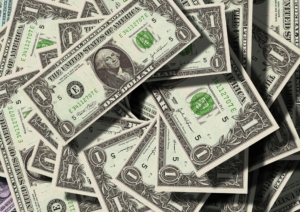During a conversation with the main partner of a 50-employee hotel, we discussed three main problems stopping their business from growing:
- Constantly competing with local hotels or large third-party sites.
- Limited marketing budget to promote their service.
- Never knowing when their next customer will come and where from.
To solve these problems, the hotel needed to invest in marketing to attract valuable customers. Pay Per Click (PPC) is one of the best ways to do this because it helps:
- Find potential customers who want to book a hotel today.
- Generates a predictable flow of new customers.
- Ensures affordability if you use the right strategies (read below).
Using our PPC strategies with 200+ businesses, we’ve generated 1000s of new customers for our clients. Read this article to learn how to find new and valuable customers through PPC. If you’re in the hospitality industry and looking for targeted expertise, discover how our hospitality PPC services can elevate your campaigns. Book a call if you’d like an honest digital marketing agency to run your PPC campaign for you and drive tangible results.
How much profit can PPC make your hotel?
It’s very likely one of your competitors is growing rapidly as a result of a well-executed PPC strategy.

But every hotel is different. Your hotel will have different positioning, brand awareness, service offering, and costs compared to a local competitor. That is why you need to have a suitable strategy for your hotel.
Therefore, before you read our winning hotel marketing strategy, it is essential that, with our interactive calculator, you should first work out if PPC will be a profitable method to acquire new customers.
But first, read these three definitions to understand how the calculator works!
How PPC Works
When you run a PPC campaign, you will pay to appear on a search engine every time a potential customer searches a specific keyword (which we will define later). Every time a potential customer clicks on your ad, you will pay money to the ad platform. This is called the Cost Per Click (CPC). For the hospitality industry, CPCs typically range from $0.50 and $5.
| DefinitionCost Per Click (CPC) Cost per click is the amount of money you pay to an advertising platform, like Google, to have a user click on your ad. |
Of the people who click on your ad, some will convert into becoming a customer. This is your Conversion Rate (CVR). For the hospitality industry, CVR typically range from 1% and 5%.
|
Conversion Rate (CVR) Conversion rate is the percentage of users that convert into becoming a customer after clicking your ad. |
We can use this to determine the cost of acquiring a single customer. Typically, this is called the Customer Acquisition Cost (CAC). For the hospitality industry, CACs typically range from $0.10 and $5.
|
Customer Acquisition Cost (CAC) This is the cost of acquiring a single customer or client. Customer Acquisition Cost = Cost Per Click / Conversion Rate CAC = CPC / CVR |
Interactive PPC Profit Calculator
Use this interactive calculator to work out how much profit you will receive from each customer acquired through PPC.
We’ve built this calculator using typical CPC and CVR across the hospitality industry. All you need to do is enter the revenue a single customer generates for you. The calculator then subtracts the marketing costs from the revenue to give you a profit per customer. Hence, by using this calculator, you can develop an understanding of the potential profits PPC could generate for your business.
It is important to note that PPC is not 100% predictable, so we have created three unique cases which represent how well your PPC campaign could perform.
Enter how much a single client
generates you in revenue
| best | average | worst | |
|---|---|---|---|
| CPC | |||
| CVR | |||
| CAC | |||
| Profit |
Visualise how much profit you could make with PPC
Overview of our PPC strategy
There are three steps to running a profitable PPC strategy.
- Set up PPC campaigns correctly to target the right audience and keywords.
- Design high-converting landing pages. These are the pages that your potential customers will visit.
- Optimise your ads and landing pages to get the maximum profit.
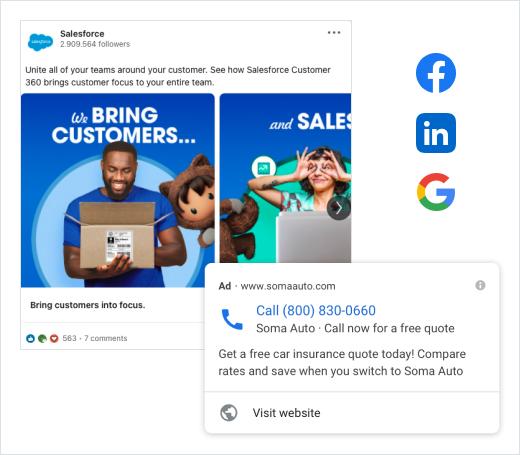
Paid Search + Paid Social
We create and manage ad campaigns on all search and social platforms
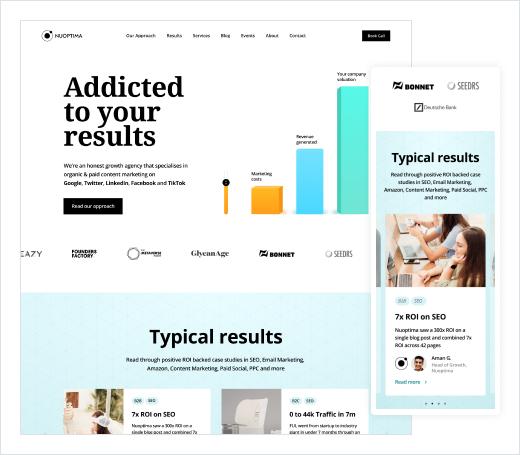
Landing Page Design
We design and implement landing pages that are made to convert
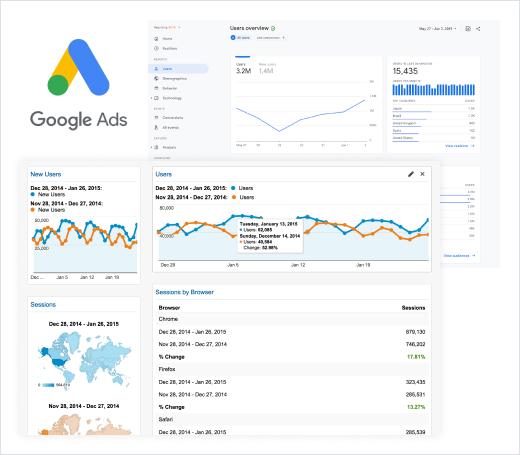
Conversion Optimization
We perform ongoing analysis and experimentation to optimize performance.
Without experience, a lot can go wrong. Doing even one of the steps incorrectly can result in losing money for every single customer you acquire.
That’s because choosing the wrong keywords can result in paying a massive $200 per click, not a mere $20. It can result in your page converting at a lowly 2%, not an optimised 20%. It’s the difference between paying $100 for every new customer or an unprofitable $10,000.
It is important to get each step right to not lose money and grow your business profitably. The rest of the article will show how to achieve a profitable PPC campaign.
Should you run ads on paid search or paid social?
There are two ways to advertise your hotel online:
- Paid Search (Google Ads, Bing Ads)
- Paid Social (Facebook, TikTok, Instagram, Snapchat)
What’s the difference? Paid Search adversting for hotels is when your ad appears on a search engine, like Google, after you’ve searched a term. This is a powerful advertising method because you can choose what keywords your hotel appears for.
We know which keywords potential customers use when they’re looking to book a hotel room. So, we can specifically choose to show your resort at the top of Google for those keywords. However, because of this amazing feature, your competitors will try a similar strategy and make it expensive. You’ll need to optimise all parts of your PPC strategy to ensure costs don’t spiral upwards!
On the other hand, if you use Paid Social, you appear ‘in-feed’. When someone is scrolling on a platform like Facebook or Instagram, ads appear. These ads interrupt the scrolling process. The person scrolling has not said they’re interested in hospitality services, but you’re hoping your ad will attract a customer. The disadvantage of this technique is your ad is also shown to people who don’t need your services. On the other hand, this advertising method is cheaper.
We’ve mostly seen hospitality businesses generate more profit on Paid Social, but there is definitely the ability to make a profit through Paid Search too.
Hence, it’s not completely black and white which way of advertising will work best for your business. It depends on the following:
- What exact hotel services are you selling?
- Who are your target customers?
- Where do your customers spend their time online?
- How much money do you make per customer?
We will discuss Paid Search in this article as it is the most profitable PPC strategy when starting off. Although, sometimes a hybrid hotel digital marketing strategy using Paid Social can improve effectiveness — if this is something you’d like to discuss, you can book a call.
Running PPC paid search ads
The most common paid search ads are keyword based. When a keyword is searched, ads appear at the top of Google.
For example, here’s a generic keyword ‘Hotel London’. Notice how the PPC ads appear first, then the organic results (from SEO) appear second.
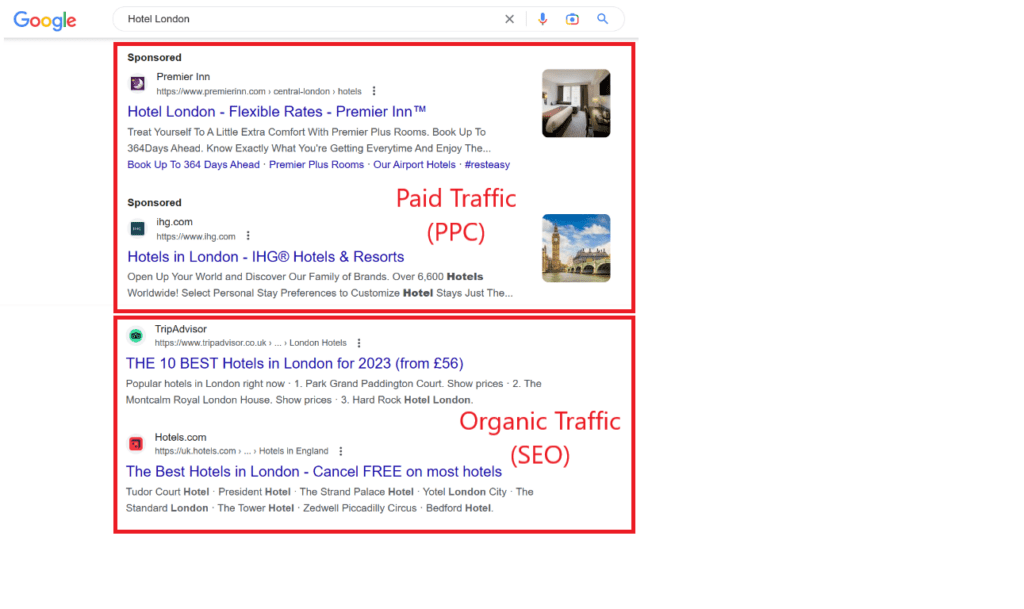
By paying for this ad, you can appear above SEO results (which takes longer to achieve). But, there are some pros and cons to this.
Pros of PPC:
- You can get in front of your potential customers quickly.
- You can win valuable customers when they are looking for a hotel.
- You can test which keywords bring in qualified customers.
Cons of PPC:
- It can be expensive if you don’t set it up right.
- Most people scroll straight past your ads. They prefer to look at SEO/organic results (however, we can help you counter this by running a hybrid strategy so you appear for both).
Up till now, you’ve learnt and understood:
- How PPC works
- If PPC will generate profitable customers
- What paid search is
- The pros and cons of a PPC strategy
However, we mentioned that PPC could sometimes be expensive if you go for the wrong keyword. How do you know which keywords will make you money? Let’s explore this further.
Which PPC keywords should you target to get new customers?
Most inexperienced PPC managers will make the mistake of choosing the wrong keywords. That mistake alone can be the difference between swimming in 100 new customers or drowning in $1000s of debt.
Here’s what wrong keywords look like:
Firstly, the wrong keywords are based exactly on the service you offer. Initially, it may seem perfect, but it can have an adverse impact.
Let’s take the example of the keyword ‘hotel.’ There are many competitors bidding for the exact keyword. This means the CPC is higher than is profitable for you to pay for, and results in you losing money. Remember, PPC operates on an auction-based bidding model. That means the more competitors that want to appear for the keyword, the more you pay.
Secondly, the wrong keywords have low intent.
For example, ‘what is a hotel spa?’. The person Googling that keyword is not ready to book a stay at a resort. They’re in education mode. Typically, these keywords have a very low CPC because no one wants that traffic.
But what do the right keywords look like?
Firstly, the right keywords that have a high intent to purchase services and receive a quote. For example, these could be branded, product, or pain point keywords.
Secondly, the right keywords have reasonable CPCs, which make sense for the services you sell. You can look back at our interactive calculator to figure that out.
We’re going to show you all the types of keywords that can result in a lot of profit for your hotel.
| Type of keyword | Examples of keyword | Pros | Cons |
| Branded | Hilton Hotels Marriott Hotels Disneyland Hotels Four Seasons Hotels |
Cost-effective strategy to win new customers when your competitors may not be the best servicer. | The competition usually bids on their own branded keyword to protect against it. |
| Service | Family Hotel Pet-Friendly Hotels Spa Hotels Luxury Hotels |
High intent keywords for purchase or solving pain point and can be very profitable. | Service-level keywords are usually competitive, and services need bespoke landing pages. |
| Location | Central London Hotel Hotel near me Motels in California Family Resorts in Italy |
High intent and very cost-effective. The big competitors usually avoid these keywords. |
You’ll be competing with local providers. You’ll need to be locally present or have easy ‘contact us’ information. |
| Pain point | How to find a pet-friendly hotel? Where to stay in Big Sur California? Best spa trip for a hen do |
It is possible to capture this lead before they go to competitors. You’ll be able to close this customer without competition. |
Slightly lower buying intent as the user is in education mode. Will need a well-designed landing page. |
Excellent PPC ad creative and copywriting examples
Your ads appear next to your competitors, so you have to find a way to stand out. That is why we first analyse the competitive landscape before bidding on a keyword for a client.
Here are some examples of hotel-related ads and what we think of them.
Ad 1: Pets Pyjamas appearing for ‘Dog-Friendly Hotels in Lake District’

Keyword: ‘Dog-Friendly Hotels in Lake District’
Verdict: ⅗
Good areas: Great headline. It includes phrases from the search query, including the specific location. It has a CTA in the description to encourage searchers to click.
Bad areas: Would be good to read some features and some social proof to support the use of the word ‘Best.’
Ad 2: Country Hotel Breaks appearing for ‘Spa Breaks for Couples’

Keyword: ‘Spa Breaks for Couples’
Verdict: ⅘
Good areas: The headline is relevant to the search query. Description includes enticing features such as the inclusion of ‘dinner, breakfast’ and other details. The ad also includes a CTA and additional links.
Bad areas: They could tailor the ad to couples as per the search query. Including couple activities and deals for two people.
Ad 3: Expedia appearing for ‘Hotels Near Disney Florida’

Keyword: ‘Hotels Near Disney Florida’
Verdict: ⅘
Good areas: Great headline. It features the keywords and a compelling ‘Refundable’ offer. The ad is clearly offering holiday deals, positioning themselves as an alternative option. The extension links are a good way to direct potential customers to their preferred hotels.
Bad areas: They could make it slightly more relevant to those attending Disney World. For example, proximity to the resort and benefits such as transport.
Ad 4: Jet2Holidays appearing for ‘Family-Friendly Hotels in Barcelona’
Keyword: ‘Family-Friendly Hotels in Barcelona’
Verdict: ⅗
Good areas: The ad is relevant to the location. The inclusion of the price per person is compelling and targets those looking for a low-budget option. The CTA’s are good too.
Bad areas: It could include features suited to families, such as children-friendly resorts, waterparks, and more. It may also benefit from including the keyword ‘Family-Friendly.’
How to create a high-converting landing page for hotel PPC?
A high-converting landing page is one of the biggest factors in PPC success. Without it, you’ll be paying for traffic that doesn’t convert into customers. That’s a huge waste of cash!
We recommend you have a conversion rate expert build out your landing page. Our winning landing page framework is reserved for our clients, but we’ll reveal the most important sections you need.
Hero Block
The first section of the landing page is called the ‘Hero Block’. You can see the whole section as soon as you open the web page. You need to have three things in this section:
- Great headline. For example, ‘Best Luxury Hotels in Los Angeles.’
- Social proof. For example, 5.8/5 stars, 4,000+ reviews.
- Call to action. For example, ‘Book Your Break Today.’
Your hero block needs to simply call out exactly what you offer, who it is for, and why you are a low-risk solution.
Service Block
High up the page, probably in the 2nd or 3rd block, you will need to explain your services and/or products. You should explain its features and benefits. For example, if you provide spa treatments, you would have features and benefits as follows:
Features:
- Choose from a range of treatments suited to your goals.
- Professional, trained therapists deliver every session.
- High-quality, luxury products for all skin types.
- State-of-the-art facilities to enhance your stay.
Benefits:
- A relaxing environment to ease stress.
- Enjoy a truly unique spa experience.
- Peace of mind knowing a professional is on-hand when you need them.
Call to Action Block
Every PPC landing page needs a highly compelling call to action block. It is solely designed to get the user to book a room or holiday package.
We highly suggest including several call-to-action blocks throughout your landing page, such as at the top of your page, one in the middle of your page, and one at the end. You’ll be surprised how much it can increase your conversion rates and reduce your customer acquisition costs!
We include 6+ other high-converting blocks in our landing pages. Reach out to learn what they are and how to implement them.
Engage an agency to run your PPC ads
There are lots of aspects to running a profitable PPC campaign for your hotel. You can attempt it yourself, or you can engage us, NUOPTIMA. We’ve worked with 200+ businesses and run thousands of PPC campaigns profitably.
A bit about us
We’re an honest growth agency, and our goal is to drive profit for your business.
We don’t work with everyone. In fact, we actively refuse 50% of all businesses that try to work with us. That’s purely based on if we think we can make your campaign a success. We only grow as an agency if we can get you results and you refer us to your friends and family.
Before you choose a PPC agency, reach out to our team. We’ll objectively tell you what we think, and if it’s good, we’ll propose a fair price alongside a set of growth expectations and Key Performance Indicators (KPIs).
Once you start to work with us, you’ll be in regular contact with our team. You’ll be provided with extensive data tracking and will communicate with us on regular calls.
Our PPC capabilities:
- We can service budgets from $100+ ad spend per day.
- Management costs start from $1,000 per month, depending on ad spend, platform, and requirements.
- Work on all ad platforms: Google, Facebook, Tiktok, Snapchat, and Reddit.
- We’ve worked with local service providers to public companies.
- We’ve worked across B2C and B2B, having driven brands to 7 figures in sales, and exceeded B2B SQL quotas.
Next steps:
- Then, you should read through some case studies here.
- And when you’re ready, send us a message or book a call here.
Book Call
Start your growth journey today.
FAQ
Pay Per Click, or PPC for hotels is an advertising model that positions your site at the top of the search engine results page (SERP). It is a direct way to target customers when they are ready to book a room or package.
When you’re running a PPC for hotels campaign, the ad manager only pays when someone clicks on the ad. This cost will vary depending on your budget, the keywords you target, and so on. It’s essential to follow proper strategies to ensure affordability and use our free PPC profit calculator available above!
Paid Social and Paid Search are two ways to advertise your hotel if you’re looking for a quick way to direct traffic to your site. Alternatively, SEO is better for long-term growth. Though a hybrid strategy can work great for many hospitality businesses. Get in touch to find out which is best for your business and growth goals.
